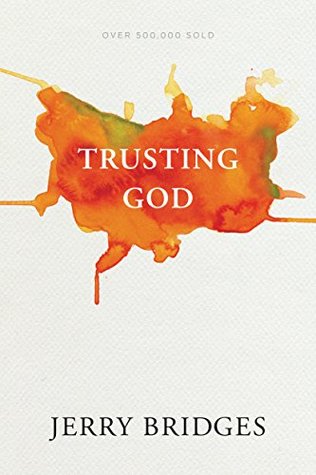More on this book
Community
Kindle Notes & Highlights
God’s providence is His constant care for and His absolute rule over all His creation for His own glory and the good of His people.
The doctrine of God’s providence clearly affirms that we can trust God. God does care for us and He does constantly—not just occasionally—govern all the affairs of our lives.
But that which should distinguish the suffering of believers from unbelievers is the confidence that our suffering is under the control of an all-powerful and all-loving God; our suffering has meaning and purpose in God’s eternal plan, and He brings or allows to come into our lives only that which is for His glory and our good.
If there is a single event in all of the universe that can occur outside of God’s sovereign control, then we cannot trust Him.
Joseph’s brothers sold him into slavery—a malicious act in and of itself—but in due time Joseph recognized that through his brothers’ actions God was acting. He could say to them, “So then, it was not you who sent me here, but God” (Genesis 45:8). Joseph recognized the hand of God in his life sovereignly directing all the events to bring about God’s plan for him.
We can trust God. He does sovereignly intervene in the hearts of people so that they make decisions and carry out actions that accomplish His purpose for our lives. Yet God does this in such a way that these people make their decisions and carry out their plans by their own free and voluntary choices.
But God never has to agonize over a decision. He does not even have to deliberate within Himself or consult others outside of Himself. His wisdom is intuitive, infinite, and infallible: “His understanding has no limit” (Psalm 147:5).
“God is infinitely wise, because he selects the best possible end of action . . . [and] because he adopts the best possible means for the accomplishment of the end which he has in view.”[2]
Sixteen times Job asked God why. He is persistent and petulant. He is accusatory toward God. And, as has been observed by many, God never answered Job’s why. Instead He answered who.
though we should never ask a demanding why, we may and should ask God to enable us to understand what He may be teaching us through a particular experience.
C. H. Spurgeon, again in his sermon on divine providence, said, “Providence is wonderfully intricate. Ah! you want always to see through Providence, do you not? You never will, I assure you. You have not eyes good enough. You want to see what good that affliction was to you; you must believe it. You want to see how it can bring good to the soul; you may be enabled in a little time; but you can not see it now; you must believe it. Honor God by trusting him.”[10]
Any time that we are tempted to doubt God’s love for us, we should go back to the Cross. We should reason somewhat in this fashion: If God loved me enough to give His Son to die for me when I was His enemy, surely He loves me enough to care for me now that I am His child. Having loved me to the ultimate extent at the Cross, He cannot possibly fail to love me in my times of adversity. Having given such a priceless gift as His Son, surely He will also give all else that is consistent with His glory and my good.
We must not allow our emotions to hold sway over our minds. Rather, we must seek to let the truth of God rule our minds.
If God’s love was sufficient for my greatest need, my eternal salvation, surely it is sufficient for my lesser needs, the adversities I encounter in this life. If we are going to come to the same heartfelt conviction that Paul had, that no adversity can separate us from the love of God, we must use our minds to reason through the great truths of Scripture even as Paul did.


